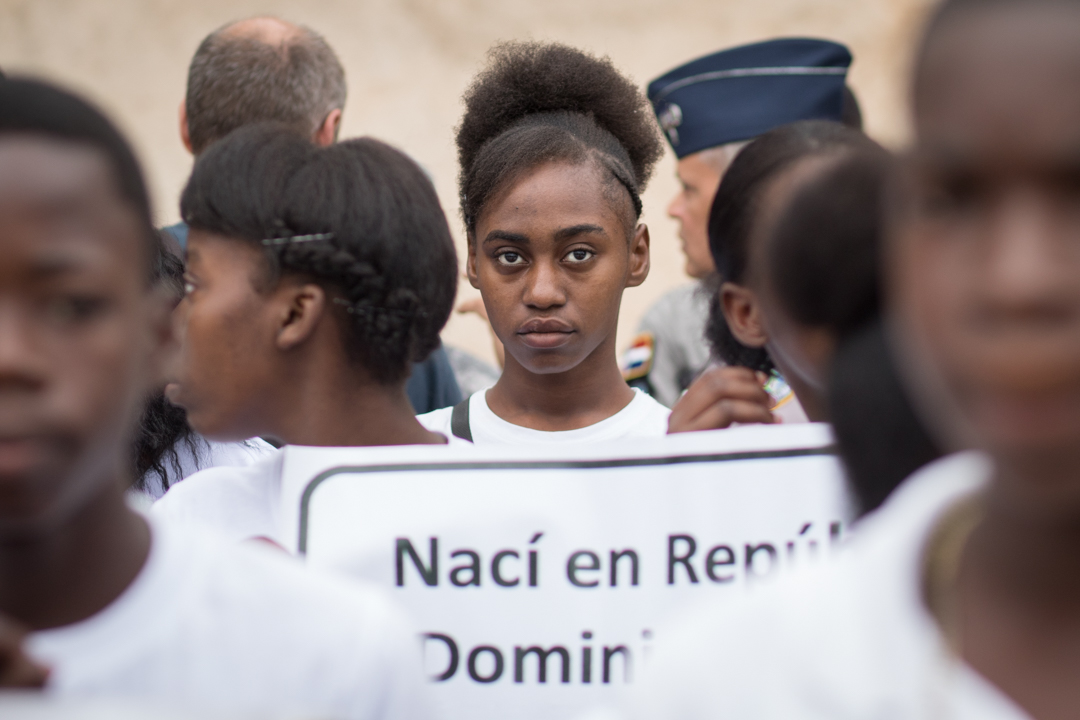






San Jose, February 11, 2019– Representatives of the victims of two cases of violations of the right to nationality caused by the discrimination suffered by Dominicans of Haitian descent denounced at the Inter-American Court the Dominican Republic´s absence and the country´s breach of its international obligations.
“The lack of willingness on the part of the Dominican State to appear before the Inter-American Court is concerning, particularly because in the last five years, there has been no progress in compliance with the reparation measures ordered by the Inter-American Court,” said Florencia Reggiardo, attorney from the Center for Justice and International Law (CEJIL). “With the passage of time, the situation is critical. Three of the victims of one of the cases died waiting on a response from the State and hundreds of thousands of Dominicans of Haitian descent continue to be affected by the denial of the right to nationality, discrimination and statelessness.”
Attorneys from CEJIL and the Dominican- Haitian Women’s Movement (MUDHA) indicated that, as of 2014, the Dominican State has not submitted any information about its efforts to comply with the sentences issued in the case of two girls whose nationality was denied and of Dominican and Haitian people expelled from the country. To date, Dominican legal regulations continue to limit access to the nationality of many Dominicans of Haitian descent. On the other hand, the State tendency to make this serious problem invisible, as well as its absence from the hearing, prolongs the suffering of the victims and any possibility that they may receive reparations.
It was also emphasized that both rulings included the adoption of measures to prevent the recurrence of discriminatory deprivation of the right to nationality. However, to date, the State’s efforts to address the situation generated by the retroactive and massive denationalization caused by the Constitutional Court´s 2013 ruling remains ineffective. Despite the issuance of Law 169 in 2014, which sought to address the crisis, many people affected by the previous ruling ended up segregated into different categories. This generated new and different problems to guarantee access to nationality documents. Furthermore, of all the Dominican victims of the sentence of expelled persons, CEJIL and MUDHA highlighted that none have obtained a Dominican identity card since the issuance of the Inter-American Court´s sentence.
“Thanks to one of the Inter-American Court´s decision on the issue of nationality in the Dominican Republic, one of our victims managed to obtain their identity documents, and was able to move forward in their studies at the university to study psychology,” said Jenny Morón, an attorney from MUDHA, “However, so many young people continue to suffer from a lack of documentation. This prevents them from studying, working, getting married and being someone in the near future. “
The hearing took place a week after the Dominican State presented its third Universal Periodic Review (UPR) before the Human Rights Council of the United Nations (UN). During this process, for which the Dominican Republic did show up, several States made 22 recommendations on nationality and statelessness, including Honduras, Montenegro, Costa Rica, Haiti, Peru, Spain, Mexico, Barbados, Serbia, Argentina, Ecuador, France, Australia, Ukraine, Canada, Italy, Brazil, Germany, Iceland, Ireland, Uruguay and the United States. Likewise, civil society groups demanded greater compliance by the State with the recommendations of the Inter-American Commission on Human Rights and the judgments of the Inter-American Court.
In response, the representative organizations reiterated earlier recommendations made at the UN and asked that the Court call on the Dominican Republic to participate in a dialogue with civil society within the Inter-American System, noting the binding obligation of the State to comply with its international judgments and obligations, in order to advance in the compliance with the reparations ordered in both cases.
Help us continue this critical and urgent work with a donation!
DONATE NOW